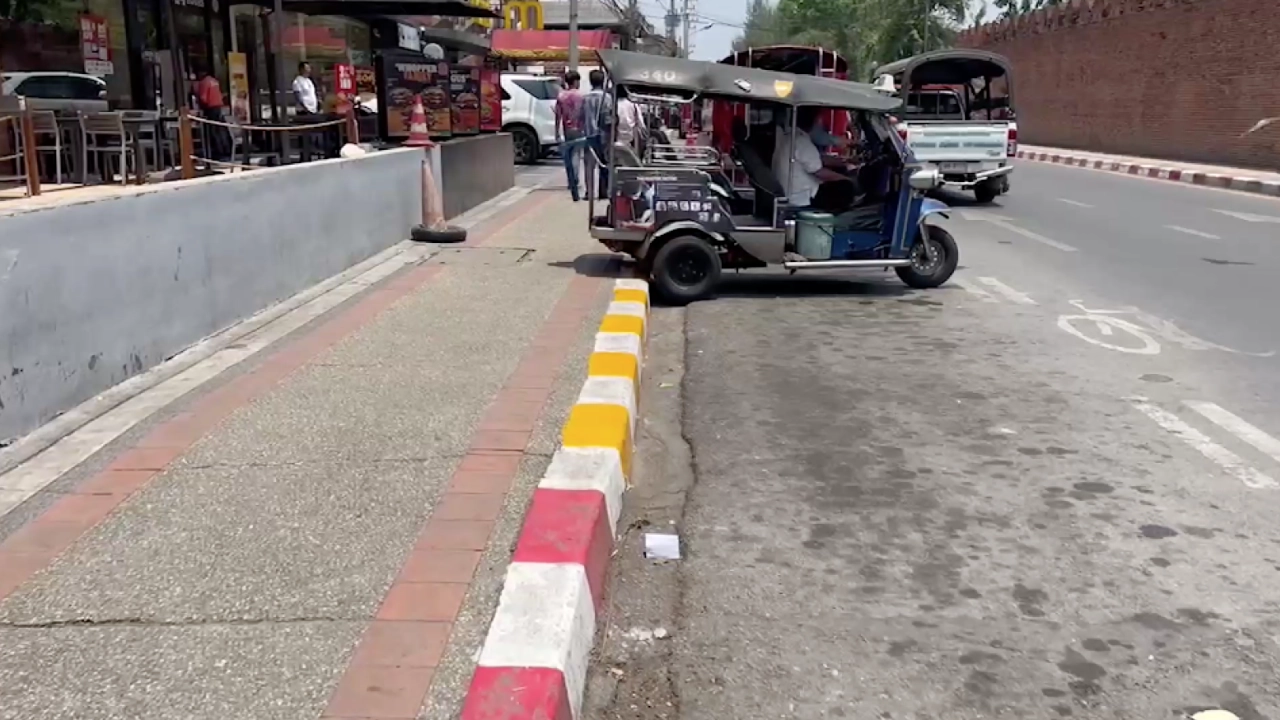Crafty Chiang Mai tuk tuk drivers paint pavement yellow to avoid traffic fines

Crafty Tuk Tuk drivers were caught on camera painting yellow paint over the red lines on the pavement in Chiang Mai in northern Thailand so they could park their three-wheeled vehicles next to Tha Phae Gate without getting traffic fines.
Red and white means absolutely no parking, whereas yellow and white means parking there temporarily is permitted.
In a short clip filmed by a tourist, one driver holds an umbrella to protect from the sun while another paints yellow paint over the red lines on the pavement on the road next to the city’s famous Tha Phae gate.
With Tha Phae Gate bustling with foreign tourists willing to splash out big cash for tuk tuk rides, it’s understandable why the drivers wanted to take over the spot by the famous landmark. Their idea might be creative, but it’s illegal.
After catching wind of the clip, officials from Chiang Mai Municipality Office travelled to the scene to investigate. They found both of the offending tuk tuk drivers from the clip who confessed it was in fact them painting the town yellow.
The officials said the tuk tuk drivers are guilty of vandalism by painting the road and ordered them to pay a fine of 5,000 baht. They are also required to paint the road back to red and white.
Reporters went to the scene and said the original red paint could be seen poking out beneath the fresh yellow paint job.
In Thailand, criminals come up with all kinds of creative ideas to evade the law. For example, drug dealers in Bangkok avoided capture for months by using a license plate flipper to trick the police.
In October last year, a trafficker smuggled two illegal immigrants over the border into Thailand by squeezing them underneath the cargo bed of a modified pickup truck. As KhaoSod put it, “nice idea, but illegal.”
Latest Thailand News
Follow The Thaiger on Google News:


























